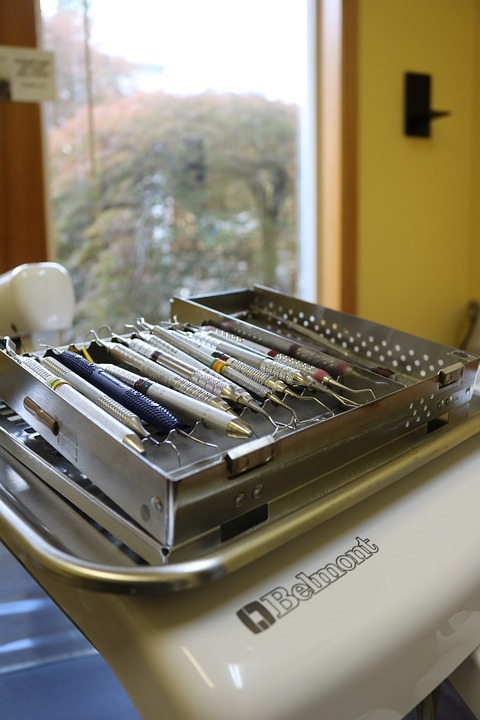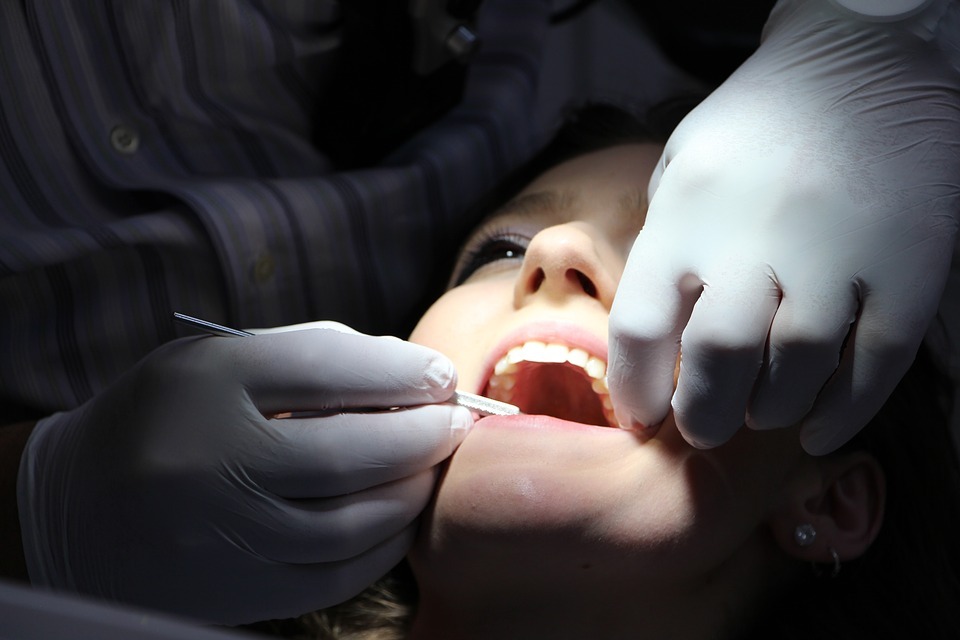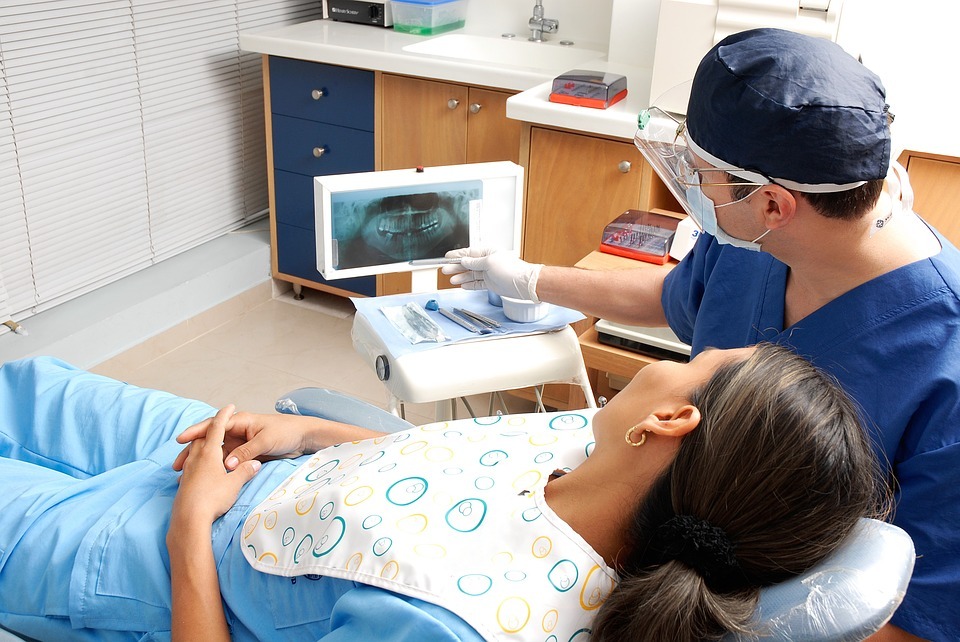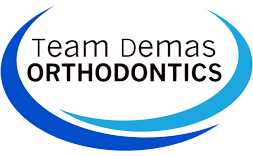
by | Jun 6, 2017 | General Articles
While wearing braces, it can be a challenge to maintain excellent oral hygiene. The goal of orthodontic treatment is a beautiful, healthy smile. If you don’t continue to practice great oral hygiene, you can end up with decay or gum disease. During orthodontic treatment, you will want to avoid anything that could delay treatment like having brackets pop off or having bands loosen.
Foods to Avoid
It is important to avoid certain foods while wearing braces so that treatment is not prolonged and oral hygiene stays impeccable. These foods include:
- Popcorn
- Hard candy
- Corn on the cob
- Whole Apples
- Ice
- Beef jerky
- Chips
- Pretzels
- Sticky candy
- Bagels
- Nuts
- Sugary sweets
- Soda and
- Inedible objects
Read more…

by | May 2, 2017 | General Articles
9 Reasons Why Widely Spaced Teeth Impact Your Overall Health
Most people focus on the aesthetics of widely spaced teeth. They want to improve their look, smile, and self-esteem.

gif courtesy of giphy.com
However, there are more than just appearance problems that you should be concerned with. Teeth that are spaced too widely apart can cause great health issues. Sure, you want to have the confidence of a beautiful smile, but those spaces between your teeth can do more than damage your smile. They could be ruining your health.
1. Gum Disease
Your overall health begins in your mouth. What you put into your mouth is a good start, but your teeth play an important role in your health too. If there are large spaces in-between the teeth, then there is ample space for bacteria to build up. Plaque and tartar are always looking for a nice, warm spot to multiply. When your mouth is filled with this type of bacteria, it can cause other problems too. These pockets of bacteria can lead to gingivitis if left untreated. Gingivitis can lead to periodontal disease. The longer this disease goes undiagnosed and treated the more sorts of problems it can cause. It is a recipe for disaster. Thankfully, utilizing various teeth straightening methods can prevent bacteria from breeding.
Read more…

by | Apr 25, 2017 | General Articles, Invisalign, Invisalign Teen, Orthodontic Treatments, Team Demas Orthodontics
You, or your parents, have spent years and a lot of money to get your teeth into perfect alignment and now you see that they are shifting back to their former position. The big question on your mind is most likely: Can retainers fix a slight shift of teeth after braces? The simple answer to this question is yes. But, more than giving you a simple answer, it’s important for you to understand how the slight shift occurred and what you can do to prevent it from happening again.
MAINTAINING YOUR SMILE AFTER BRACES FAQ
Why do Teeth Shift after Braces?
It was the tension applied through your braces that forced your teeth to move into their straightened positions. When that pressure is removed, your gums and bone may try to return to their former misaligned conditions. To maintain the new structure of your teeth, you will need to use a retainer.
After your braces were removed, your orthodontist provided you with a retainer that you were to wear daily for a scheduled period of time. That schedule may have been for several hours every day as well as throughout the night. The retainer was meant to allow your gums and bone to adjust and support the new position of your teeth.
If you did not follow your orthodontist’s schedule or only wore your retainer sporadically, you provided your teeth with the opportunity to start shifting back to their previous condition. The shifting of your teeth does not happen fast, so it is possible that you will not notice the change until you see something in the mirror or you have problems when brushing and flossing.
Read more…

by | Apr 4, 2017 | General Articles

gif courtesy of giphy.com
When your child is dealing with crooked and misaligned teeth, it is important that you consider starting them on an orthodontic treatment plan as soon as possible. Early orthodontic treatment is essential for preventing long-term problems that involve the teeth and jaw. Severely misaligned teeth can pose a myriad of issues, not all of which are “socially-based.” Problems with chewing, speaking and brushing can all result from improper alignment and the overall failure to seek orthodontic care.
Who is the Best Candidate?
The American Association of Orthodontists recommends that children above the age of seven begin orthodontic care. If your child is younger than seven, there is still a chance that they have some of their primary teeth. Once the primary teeth have fallen out and the adult teeth have erupted, the dentition can be straightened and improved using orthodontics. Generally, anyone who has even a slightly misaligned smile can benefit from good-quality orthodontic work. Only a licensed orthodontist will determine your child’s eligibility for early orthodontic treatment.
Along with misalignment problems, anyone who has a malocclusion (uneven bite) will benefit from regular orthodontic work. Crooked, crowded and misaligned teeth can negatively affect the way you bite. This could be the result of genetics, poor habits during babyhood, injuries that were sustained or even issues with the primary teeth themselves. Genetics play a huge role in how your child’s teeth will look when they grow their adult teeth. If you had to wear braces as a child or teenager, chances are good that your child will have to wear them, too.
Read more…

by | Mar 7, 2017 | General Articles

gif courtesy of giphy.com
Orthodontic emergencies don’t happen too often, but when children are involved, there’s bound to be something that loosens, breaks or irritates. In most cases, a temporary solution can be done at home. If it’s a more serious problem, it’s important to know when to get help.
Types of Orthodontic Emergencies
Not all problems your kids will encounter with braces need the immediate attention of an orthodontist. The first set of tips on how to deal with emergencies involves issues they may have with the braces and how you can help them solve the problem.
• Sore teeth – During the first 24 to 72 hours after braces are applied, the teeth may ache or feel sore. To relieve any pain, take Tylenol and eat a soft food diet.
• Mouth sores – It is possible for sores to develop inside the mouth when braces are new. Eventually, the skin becomes used to the braces rubbing against the lips and cheeks and the sores heal. For relief, a small amount of cotton or wax can be placed on the brace where the irritation occurs.
• Broken or loose braces/brackets – If teeth are brushed too vigorously or the wrong foods are eaten, brackets can come loose. If it can be easily removed, the bracket should be brought to the next appointment so it can be reattached.
• Poking or loose wire – Sometimes, the wire is still attached to the bracket but sticking out. The patient can push it back gently with a q-tip or pencil eraser and use orthodontic wax to keep the wire from cutting the inside of the gum or cheeks.
• Loose teeth – It is common for teeth to loosen while wearing braces. The constant pressure and force of the braces help the teeth shift to a new position. As with any concerns, have it checked at the next appointment.
• Headgear issues – If wearing a headgear is causing a problem, it needs to be adjusted to prevent any unwanted jaw or tooth movement. Call your orthodontist as soon as possible.
Read more…

by | Feb 7, 2017 | General Articles
The Value of Routine Orthodontic Care
If the words “visit orthodontist” regularly show up on your “to do” list, you should be proud of yourself. Routine orthodontic care is essential for people who wish to maintain straight and even teeth. If you visit the orthodontist for

Photo Credit: ozwaldoruiz via pixabay.com
checkups on a routine basis, you understand just how important overall oral health is. Frequent dental care can keep oral health conditions at bay. It can help people maintain healthy and strong teeth for life. Things aren’t too different with regular orthodontic care. If you want to maintain straight and even teeth forever, you have to keep up with your orthodontic needs, plain and simple. Orthodontic care can help people who have issues with teeth alignment that require prompt attention.
Straight Teeth and Overall Dental Health
Straight teeth aren’t only important for aesthetic purposes. There’s no arguing that it can feel great to have a smile that looks like it’s straight out of a Hollywood movie. The advantages of straight teeth, however, go a lot deeper than that. Teeth that are straight can contribute to strong dental health overall. If your teeth are nice and straight, taking care of your dental hygiene needs can be a lot simpler and straightforward. Straight teeth make flossing and brushing a lot more hassle-free. If you want to do whatever you can to keep your teeth and gums in A+ condition, it can significantly help to have straight teeth.
Read more…










